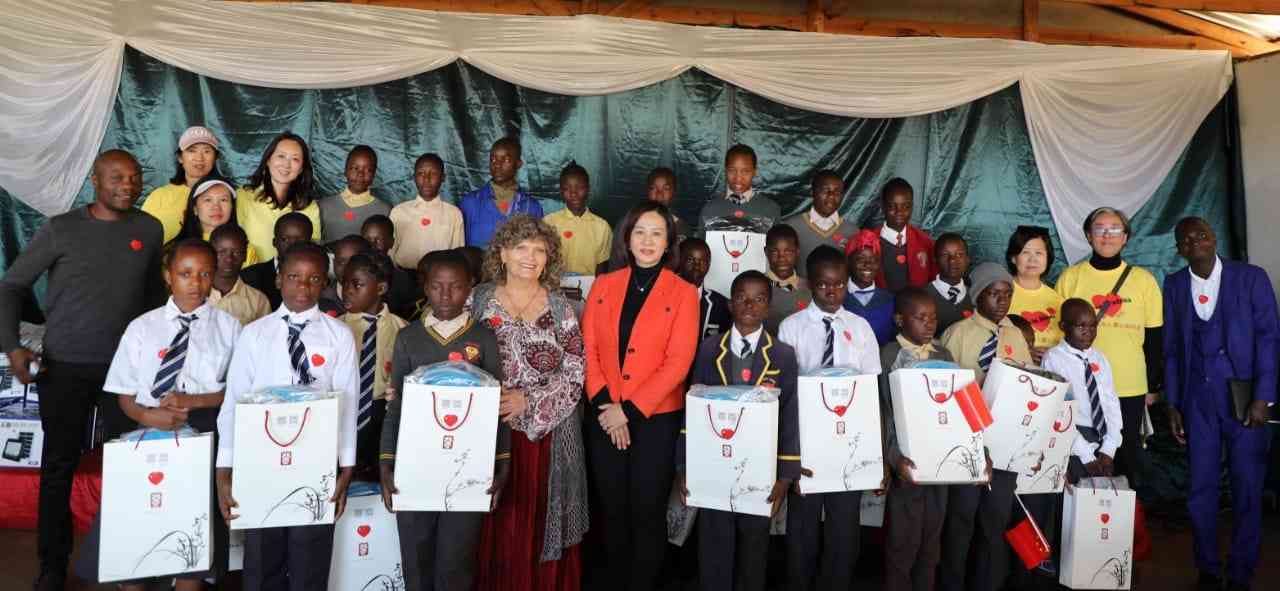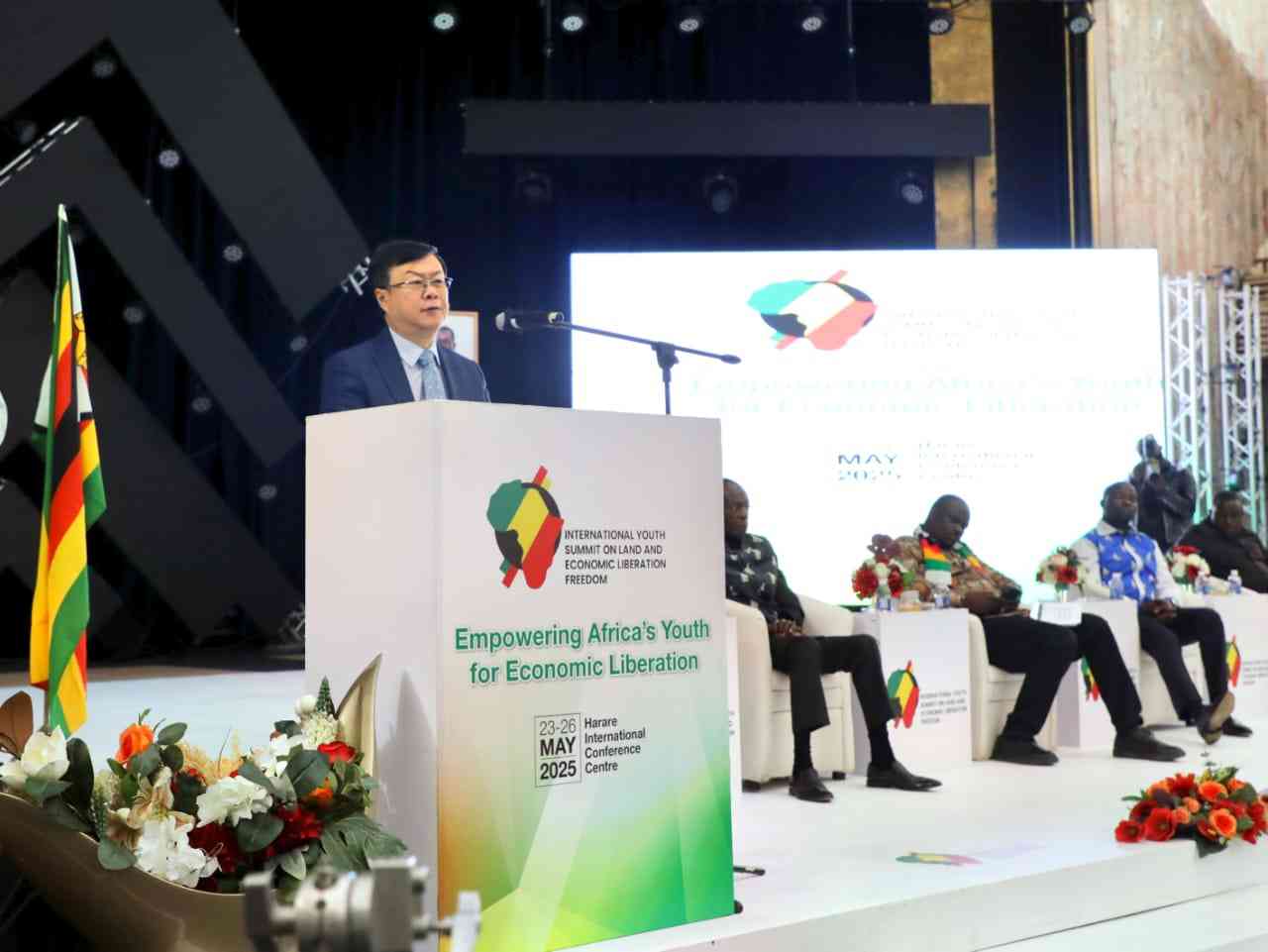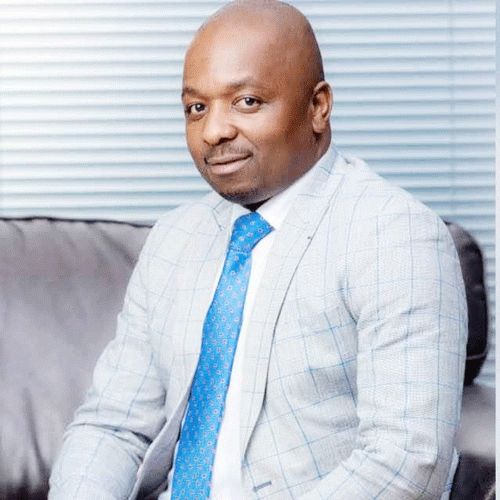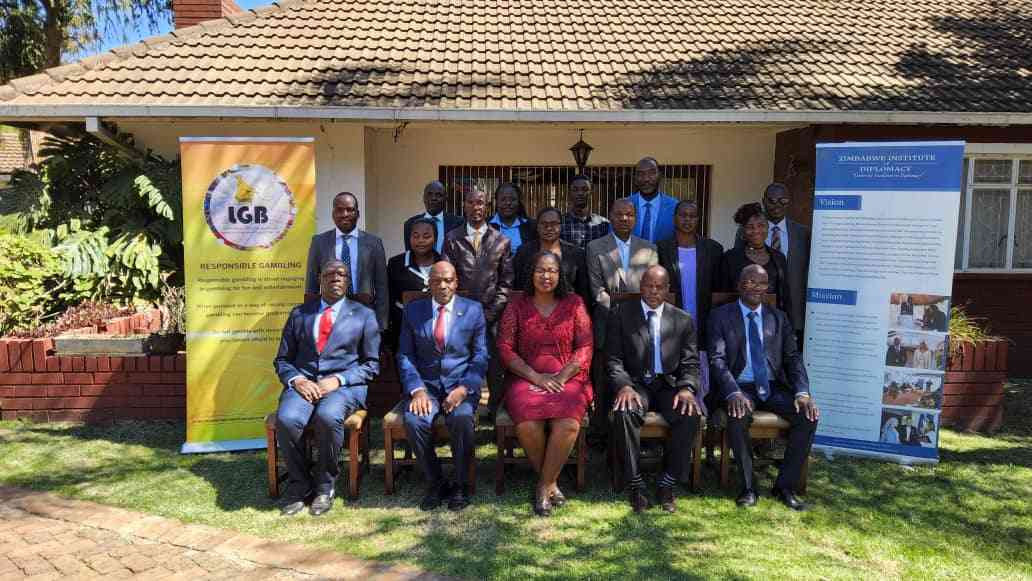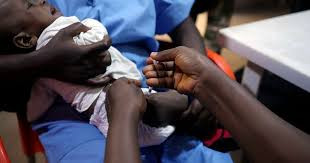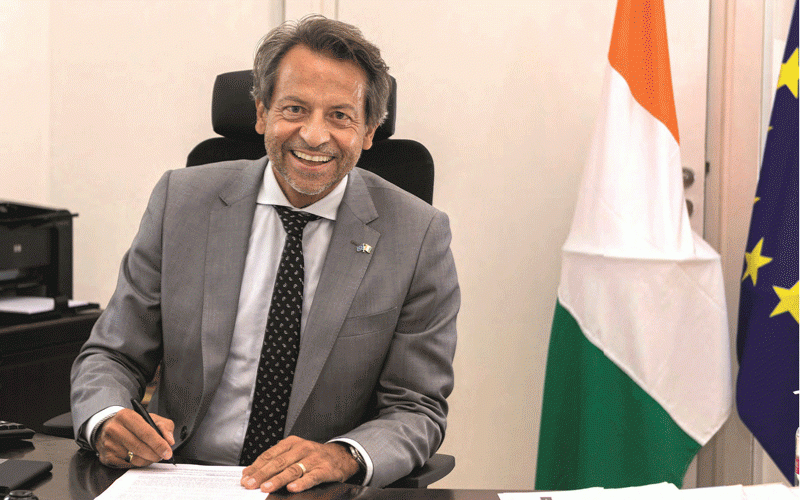
European Union ambassador to Zimbabwe Jobst von Kirchmann says Brussels will not impose any solutions to challenges facing the country as it is the responsibility of locals.
Von Kirchmannn (JVK) told Alpha Media Holdings chairman Trevor Ncube (TN) on the platform In Conversation with Trevor that his role as the EU envoy in Harare was not to fix anything, but to support good strategies.
The top envoy spoke about EU relations with Zimbabwe, sanctions and the 2023 elections, among many other issues.
Below are excerpts from the interview.
TN: Ambassador von Kirchmann, welcome to In Conversation With Trevor.
JVK: Good morning Trevor Ncube. Like you I was training before to get that name right!
TN: You did. It is not an easy one hey. It is just like yours...
- In Conversation with Trevor: Chisamba: Let’s be proud of ourselves
- In Conversation with Trevor: ‘I tried to change Zanu PF from within’ – Margaret Dongo
- In Conversation with Trevor : How car crash changed my life
- In Conversation With Trevor: ‘We lost our humanity’
Keep Reading
JVK: It is a complicated one.
TN: But I am sure by the end of this conversation we will get there.
JVK: By the end of this conversation I will call you Trevor! It’s easier.
TN: Oh fantastic. So can I call you Jobst?
JVK: Of course.
TN: Excellent. I do not take your being here for granted, you are a busy person, so thank you so much for being here.
You presented your credentials on October 12, 2022? And I have just been watching the tone from you and comparing you with your predecessor, and I am getting a sense... Has there been a change in EU policy with you coming in?
Or this is a different personality?
JVK: First of all, I think the overall line is that we would like to have a constructive engagement with Zimbabwe.
Now the question is how do you build this up?
You know there are many ways of building up an engagement.
I personally believe a lot in building bridges, and that might not always be possible, but building bridges requires somehow that somebody is listening to you, and that also means you must talk in a way that the other gives you his ear or her ear and listens, and maybe not only replies to you, but also want to understand.
And I think that is where I am coming from, it is actually very simple.
So I think the overall policy, if you look at the declarations we would have made over the course, the last two years or so now has not really changed, so much we want constructive engagement with Zimbabwe.
TN: You say it is easy.
It is not easy, listening to each other is not easy.
We tend to want to listen so that we answer.
Have you found it easy to have those kinds of conversations where people give you the space to speak and listen to you?
JVK: When I presented my credentials actually to his Excellency I was saying it is important that we do not talk about each other, but we talk to each other and somehow obviously each country, each continent has its own style, each individual has their own style what it means talking to each other.
When I talk to you, you are probably sensitive to certain words and certain styles, and I think that is part of diplomacy as well, that you have the right tone so that the other one is listening to you, and that's what they're trying to do.
TN: So clearly you are talking about effective diplomacy? Share with us, what do you think makes a successful diplomat? What are the key characteristics of a successful diplomat?
JVK: First of all, I think you have to believe in what you represent.
So, I am European, I believe in the European values, in the European system.
I think we have a fantastic system, and often when I go around and I talk to students around the world and I say apart from your own country where would you like to live, one of the countries which comes up is the EU.
And they say that is because as a woman I have my rights, I get justice when I go to court, I am a minority, I can exercise my religion etcetera.
These are all our values, so I believe in that.
Secondly, you have to be very open to other cultures, you have to embrace them, because when you go somewhere; whatever country I went in the world you see something very different.
You live in your own country, I grew up in Germany in a small village, you live in that.
So what is mainstream in that village is basically what tradition makes it.
So, you go somewhere else and it is different.
Now you can reject it or you can embrace it, you can be open-minded and look at it and say well maybe that is better or that is less good than in my place, and if you have that attitude I think you are open to understand the other.
And here we are in diplomacy, diplomacy for me comes down to not dividing people but federate people, and somehow bringing people closer together means I go back to Brussels, I try to make my Brussels colleagues understand what Zimbabwe or before I was in a Côte d'Ivoire is about.
And I also try to make my counterparts understand here what's the EU about.
So, it is about federations, it is about bringing people together and being open-minded.
I could add a lot of other things.
TN: Somebody said for a diplomat to be successful they must be discreet, they must be patient, they must not be timid, they must not be excitable.
I tend to see a lot of excitement within the typical diplomatic community in Zimbabwe to the extent that one gets the sense that it almost borders on diplomas being activists.
JVK: I think diplomats are not activists. When I was 20 years old I was volunteering for an NGO in Germany and I was an activist.
My purpose at that moment was not to bring people together, it was to fight for my cause yeah.
And if that meant division, it meant division.
Again, as a diplomat, I think why are you here as a diplomat?
Is to bring a block like the EU closer to Zimbabwe and bringing Zimbabwe closer to the EU, that is the purpose, mutual understanding.
Again, an open mind listening to the other, and trying to understand where he or she is coming from.
I think that is diplomacy.
Then on being discreet, it depends on what and when.
I think we live in times of social media, we all have Twitter accounts and Instagram and LinkedIn and other accounts, and Facebook accounts.
So, I think also diplomacy is globally changing a bit more towards public diplomacy, and so the old school diplomacy where everything is done behind the curtains I think is not entirely valid anymore.
TN: So, when you were sent over from Brussels, what are the key issues that were uppermost on your to-do list for Zimbabwe?
JVK: For Zimbabwe, as I said I think you find it all in the different declarations, I think it is on one hand, having constructive engagement with Zimbabwe, working as a partner together.
I think also as working as a partner together means mutual respect.
Mutual respect for sovereignty of the country, it also means not abandoning what you self-believe in, as I was saying my values, I believe in them, I will promote them wherever I go around.
But obviously there is a fine balance between promoting values and at the same time respecting sovereignty.
I think it is very important, and then also using other tools like development cooperation in that sense, and I can expand further if you want
TN: But my point was what issues were like burning issues that you as the European ambassador to Zimbabwe, go and fix this, go and sort that if there was anything of that sort?
JVK: Well that is very interesting, the words you choose. “Go and fix it.”
This is not in my instruction, you saw it in my mandate, because that is exactly what neither my political masters nor myself believe in.
If there is an issue in Zimbabwe, only Zimbabweans can find a solution, not the European Union or any other partner.
So it is not that I am sent to fix anything, I am sent here to support what is a good strategy, what is a way forward etcetera.
And in that certainly, and we are talking about support, not fixing, and I think that is a very important point because you see me when you look at my activities on social media and the press releases etcetera.
You hear me saying always, we align with the national strategy, because that is what we do because there is nothing like a European strategy for Zimbabwe, there is nothing like a European...
TN: There is nothing like a European strategy for Zimbabwe?
JVK: Because for an issue in Zimbabwe how can there be a European solution?
I mean I have been here since September 2022, I presented my credentials in October 2022, so I have been here since a couple of months, how can I have a solution for any issue.
Of course, I hope that elections go well, I hope that is a different thing, yeah and I will support any effort in that sense, but I do not have a solution to a Zimbabwean problem.
TN: So you have taken us to the elections. What are your concerns as the elections, as we look at the 2023 elections?
JVK: I think it is not a concern, it is a hope Because I think a lot is at stake in the 2023 elections, and if you look at the different processes which have been started, and there is the clearance process, where basically Zimbabwe would like to get rid of almost US$19 billion arrears, which opens the door to sovereign lending which is important if you want to unlock the potential of the country.
It has a huge potential, and the government has put forward Vision 2030 for being an upper middle-income country. You need to unlock that.
TN: Right.
JVK: You want to be a member of the Commonwealth etcetera.
So, I think elections are a trigger, a catalyst.
I hope the low-hanging fruit to like somebody puts a foot on a gas pedal and it accelerates that process.
So that is what I hope, and this hope is combined with any support we can have for elections.
Whether it is financial support, whether it is support through electoral observation, I mean we stand ready to do that.
TN: Have you been invited to bring together an electoral observer mission from the EU?
Have you been invited? If not, where is that process? Because I suppose it is critical to the view that you take of the elections isn’t it?
JVK: I think we believe that an election observation mission is always a positive element because it makes your electoral environment more robust.
But that is entirely dependent on invitation.
His Excellency President Mnangagwa at several occasions has expressed his intention to our president, to myself to others, his intention to invite us to send an observation mission.
So, I think that will happen, and we welcome that intention as well, because I think that is a good way forward, a good way of working together.
TN: Supposing it does not happen?
JVK: I am not somebody who talks about hypothetical things.
TN: Right. Talk to me now about your reading of the run-up to the elections?
I mean the election is five months away, voter registration, issues and concerns around voter registration?
The voters’ roll? Access to the media as far as the opposition is concerned?
Generally, the terrain, because the terrain prior to the elections is perhaps much more important than the election date itself?
What is your assessment of that terrain?
JVK: Well I think it is still early to really assess it because we have laws, which are still pending.
Take the Electoral Bill for example, we do not know what the outcome is at the end and I think this will determine to a large extent how robust the electoral environment is.

